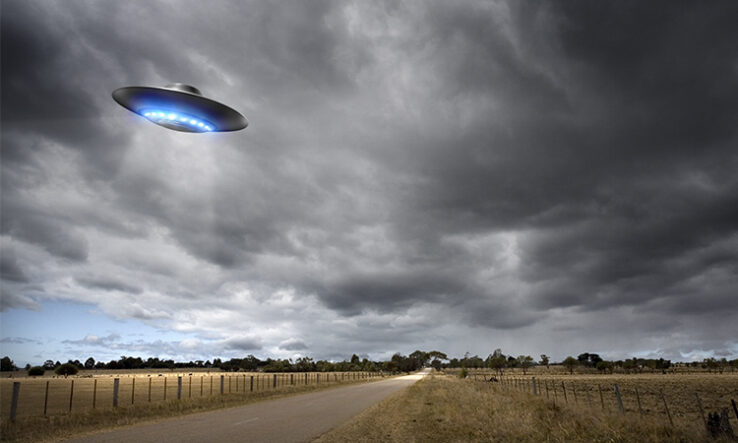
Science committee has no plans to investigate flying saucers, as US Congress inquiry captures imaginations
The UK government does not spend any money on R&D into unidentified flying objects, it has emerged, as a US congressional inquiry reignites global interest in the issue.
The Committee on Oversight and Accountability in Washington heard claims of government programmes on crashed UFOs, despite no hard evidence emerging yet, during its inquiry called Unidentified Anomalous Phenomena: Implications on National Security, Public Safety, and Government Transparency.
“Congress recognises that the subject of UAPs [unidentified anomalous phenomena] is multifaceted and requires a careful, data-driven approach,” said Glenn Grothman, chairman of the Subcommittee on National Security, the Border, and Foreign Affairs, as the inquiry opened on 26 July.
“I look forward to hearing from our witnesses today about ways that we can improve government efficiency and openness when it comes to UAPs.”
Following its launch, the inquiry has generated huge interest in the US and across the globe, including in the UK, where there have been a number of unconfirmed UFO sightings over the years.
Despite increased interest in the issue, the UK House of Commons Science, Innovation and Technology Committee told Research Professional News it had no existing or planned work on the issue.
No investigations since 2009
Meanwhile, a spokesperson for the Ministry of Defence said it had “ceased to investigate reports of UFO or UAP in 2009, and there is no change in that”.
Research Professional News understands that in over 50 years, no sighting reported to the MoD has indicated the existence of any military threat to the UK, and that the department deems it more valuable to prioritise staff towards other defence-related activities.
A spokesperson for national funder UK Research and Innovation also confirmed it did not fund any UFO research.
“UKRI is not currently engaged in any programmes dedicated to UFO detection,” a spokesperson said.
However, the spokesperson said the funder supported a “range of other space-monitoring activity across its councils”.
They added that UKRI also funds “various research into extra-terrestrial life”. For example, the MINAR collaboration between the Science and Technology Facilities Council’s Boulby Underground Laboratory, Rutherford Appleton Laboratory and institutes to develop and test technologies for planetary exploration, including life-detection equipment.
It also funds various projects investigating the “ability of life to emerge under, and endure extreme conditions such as those found in outer space to inform the search for life elsewhere in the universe”, and makes contributions to the James Webb Space Telescope and “its search for the building blocks of life outside of the solar system”.
A UK Space Agency spokesperson said: “We don’t fund anything looking at UFOs, but we are supporting missions looking at how life might have evolved on Mars, and separately we fund research into how biology works in space.”
The Department for Science, Innovation and Technology referred questions on UFOs to UKSA and had no further comments.